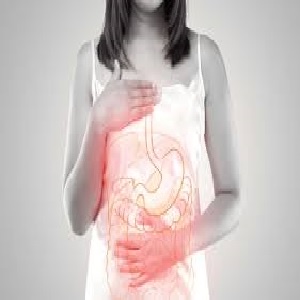Esophageal cancer is a type of cancer that develops in the esophagus, the muscular tube that connects the throat to the stomach. It is a relatively rare form of cancer, but it can be aggressive and difficult to treat, particularly if it is not diagnosed early. In this article, we will explore the causes, symptoms, diagnosis, and treatment of esophageal cancer.
Causes of Esophageal Cancer: The exact cause of esophageal cancer is not known, but certain factors can increase the risk of developing the disease. These risk factors include:
- Smoking: Smoking tobacco increases the risk of developing esophageal cancer.
- Heavy alcohol consumption: Excessive alcohol consumption can also increase the risk of esophageal cancer.
- Gastroesophageal reflux disease (GERD): Chronic acid reflux can damage the cells in the esophagus, increasing the risk of cancer.
- Obesity: Being overweight or obese can increase the risk of developing esophageal cancer.
- Diet: A diet low in fruits and vegetables and high in processed foods may increase the risk of esophageal cancer.
- Age: The risk of esophageal cancer increases with age, with most cases diagnosed in people over the age of 50.
Symptoms of Esophageal Cancer: Esophageal cancer does not usually cause any symptoms in its early stages. However, as the cancer grows, it can cause symptoms such as:
- Difficulty swallowing: This is the most common symptom of esophageal cancer and is often the first symptom to appear.
- Unexplained weight loss: Esophageal cancer can cause a loss of appetite and unintentional weight loss.
- Chest pain: Pain or discomfort in the chest, particularly when swallowing, can be a symptom of esophageal cancer.
- Indigestion or heartburn: Persistent indigestion or heartburn that does not respond to treatment can be a sign of esophageal cancer.
Diagnosis of Esophageal Cancer: Esophageal cancer is usually diagnosed using a combination of imaging tests, such as an endoscopy or CT scan, and a biopsy, where a small sample of tissue is taken from the esophagus and examined under a microscope. Once diagnosed, further tests may be done to determine the stage of the cancer and whether it has spread to other parts of the body.
Treatment of Esophageal Cancer: The treatment of esophageal cancer depends on the stage of the cancer and the overall health of the patient. Treatment options may include surgery, chemotherapy, radiation therapy, or a combination of these treatments. The goal of treatment is to remove or destroy the cancer cells and prevent the cancer from spreading further.
Conclusion: Esophageal cancer is a serious disease that requires prompt diagnosis and treatment. Knowing the risk factors and symptoms of esophageal cancer can help in early detection and improve the chances of successful treatment. If you have any concerns about your risk of developing esophageal cancer, it is important to speak to your doctor.


No comments yet